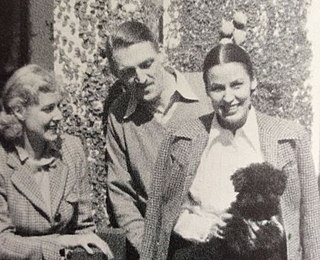A Quote by Friedrich Nietzsche
Which is it? Is man only a blunder of God? Or is God only a blunder of man?
Related Quotes
Feuerbach ... recognizes ... "even love, in itself the truest, most inward sentiment, becomes an obscure, illusory one through religiousness, since religious love loves man only for God's sake, therefore loves man only apparently, but in truth God only." Is this different with moral love? Does it love the man, this man for this man's sake, or for morality's sake, for Man's sake, and so-for homo homini Deus-for God's sake?
The glory of God is the living man, but the life of man is the vision of God', says St. Irenaeus, getting to the heart of what happens when man meets God on the mountain in the wilderness. Ultimately, it is the very life of man, man himself as living righteously, that is the true worship of God, but life only becomes real life when it receives its form from looking toward God.
The doctrines of Jesus are simple and tend all to the happiness of man, that there is only one God and God is perfect. That God and man are one. That to love God with all your heart, and your neighbor as yourself, is the sum of religion. These are the great points on which I endeavor to reform and live my life.
For the essence of sin is man substituting himself for God [Gen. 3:1-7], while the essence of salvation is God substituting himself for man [2 Cor. 5:21]. Man asserts himself against God and puts himself where only God deserves to be; God sacrifices himself for man and puts himself where only man deserves to be.
By His gracious condescension God became man and is called man for the sake of man and by exchanging His condition for ours revealed the power that elevates man to God through his love for God and brings God down to man because of His love for man. By this blessed inversion, man is made God by divinization and God is made man by hominization. For the Word of God and God wills always and in all things to accomplish the mystery of His embodiment.
Modern prophets say that our economics have failed us. No! It is not our economics which have failed; it is man who has failed-man who has forgotten God. Hence no manner of economic or political readjustment can possibly save our civilization; we can be saved only by a renovation of the inner man, only by a purging of our hearts and souls; for only by seeking first the Kingdom of God and His Justice will all these other things be added unto us.
The man who has known pure joy, if only for a moment ... is the only man for whom affliction is something devastating. At the same time he is the only man who has not deserved the punishment. But, after all, for him it is no punishment; it is God holding his hand and pressing rather hard. For, if he remains constant, what he will discover buried deep under the sound of his own lamentations is the pearl of the silence of God.







































